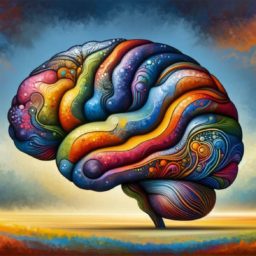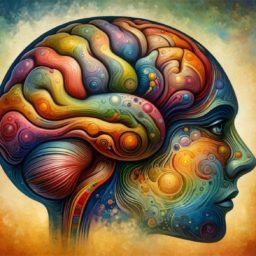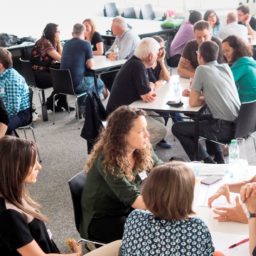
AustraliaAustriaBrazilCanadaChinaCzech RepublicEgyptFranceGermanyGlobalIndiaItalyJapanMexicoNetherlandsPolandSaudia ArabiaSingaporeSpainTurkeyUAEUnited KingdomUnited States As an Amazon Associate, I earn a small commission when you purchase a book via this site. Books: Pragya AgarwalSway: Unravelling Unconscious Bias by Pragya Agarwal (2021)Book Purchased: 01 May, 2022 Strategy: A History Talk Is Not! Cheap: the Art of Conversation Leadership Tags: cognitive bias (28) | … Continue reading Sway: Unravelling Unconscious Bias by Pragya Agarwal (2021)

Ted Cadsby is an author and researcher, writer and speaker on complexity and decision-making. I don’t know Ted and although he does not use the term Conversational Leadership, he does get close when he talks about Complex Leadership. He is one of a handful of people who are writing and talking about the power of … Continue reading Ted Cadsby Author and researcher, writer and speaker on complexity and decision-making.

What is complex leadership? It starts by understanding the strengths and vulnerabilities of group dialogue. It uses this knowledge to leverage cognitive diversity within a group. | Ted Cadsby Continue reading What Is Complex Leadership? Ted Cadsby

Daniel Kahneman is a psychologist and economist notable for his work on the psychology of judgment and decision-making, as well as behavioral economics. Thinking, Fast and Slow | Daniel Kahneman WikipediaDaniel KahnemanYouTubeDaniel KahnemanGoogleDaniel KahnemanBooks: Daniel KahnemanBelief Coherence Daniel KahnemanDaniel Kahneman Psychologist and behavioral economistFor Some of Our Most Important Beliefs, We Have No Evidence at … Continue reading Daniel Kahneman Psychologist and behavioral economist

AustraliaAustriaBrazilCanadaChinaCzech RepublicEgyptFranceGermanyGlobalIndiaItalyJapanMexicoNetherlandsPolandSaudia ArabiaSingaporeSpainTurkeyUAEUnited KingdomUnited States As an Amazon Associate, I earn a small commission when you purchase a book via this site. People: Daniel KahnemanDaniel Kahneman Psychologist and behavioral economistBooks: Daniel KahnemanBelief Coherence Daniel KahnemanDaniel Kahneman Psychologist and behavioral economistFor Some of Our Most Important Beliefs, We Have No Evidence at All Daniel … Continue reading Thinking, Fast and Slow Daniel Kahneman (2012)

For both the rich and the poor, life is dominated by an ever-growing current of problems, most of which seem to have no real and lasting solution. Clearly, we have not touched the deeper causes of our troubles. It is the main point of this book that the ultimate source of all these problems is in thought itself, the very thing of which our … | David Bohm Continue reading We Have Not Touched the Deeper Causes of Our Troubles David Bohm

The Fable of the Bees Writing with AI Isn’t Necessarily Cheating Close Pop-up all posts in this chapter What’s the Vibe? Please be patient as this may take up to a minute to load… Close Only Me Continue reading Critical Thinking How to challenge your own assumptions

Organizations and individuals face increasing complexity and uncertainty. Relying on isolated knowledge limits understanding and leads to biased decisions. Sharing ideas and insights through conversation helps people make sense of information, solve problems, and adapt to change together. Continue reading Introduction: Knowledge Management Knowledge Management is not an oxymoron

Evaluate Sources and Evidence Explore What’s Missing Close Pop-up all posts in this chapter What’s the Vibe? Please be patient as this may take up to a minute to load… Close Explore Other Perspectives: Ask the chatbot to provide alternative perspectives on a subject. This method encourages us to consider different viewpoints, developing a more … Continue reading Explore Other Perspectives Use the chatbot to broaden your understanding of a subject

Explore What’s Missing Play Devil’s Advocate Close Pop-up all posts in this chapter What’s the Vibe? Please be patient as this may take up to a minute to load… Close Analyze Assumptions and Biases: Probe the assumptions and biases that might be embedded in the chatbot’s responses. This practice helps us become more aware of … Continue reading Analyze Assumptions and Biases Probe the assumptions and biases that might be embedded in a chatbot’s responses

Three Questions for Meaningful Conversations The Perils of Binary Bias ** Close Pop-up all posts in this chapter What’s the Vibe? Please be patient as this may take up to a minute to load… Close Cognitive biases affect how we interpret and respond to conversation and reason together, potentially leading to flawed or irrational conclusions, … Continue reading The Impact of Cognitive Biases in Conversation Cognitive biases can lead to flawed or irrational conclusions in a conversation

Data, information, knowledge, and wisdom are often seen as a straightforward progression. But knowledge is not simply derived from information—it is shaped by curiosity, social interaction, and experience. Understanding how we actually come to know things requires moving beyond rigid models to embrace complexity, uncertainty, and human judgment. Continue reading The DIKW (data, Information, Knowledge, Wisdom) Pyramid The DIKW model

The Impact of Cognitive Biases in Conversation We Are Not Enemies but Friends—mostly Close Pop-up all posts in this chapter What’s the Vibe? Please be patient as this may take up to a minute to load… Close Introduction In an increasingly complex and interconnected world, the concept of binary bias, also known as binary thinking … Continue reading The Perils of Binary Bias ** Simplifying complex issues into two extreme and opposing categories

Knowledge and Information ** The Knowledge Delusion Close Pop-up all posts in this chapter What’s the Vibe? Please be patient as this may take up to a minute to load… Close The argumentative theory of reasoning proposes that reason did not evolve to help us to reason individually but to reason together – in other … Continue reading The Argumentative Theory of Human Reason We did not evolve to reason individually but to reason socially

Trust & Belief Formation Our Tribal Nature Close Pop-up all posts in this chapter What’s the Vibe? Please be patient as this may take up to a minute to load… Close Many false beliefs feel convincing because they rest upon simple, appealing stories. We tend to readily accept uncomplicated narratives without verification. What drives this … Continue reading The Allure of Simple Stories We tend to readily accept uncomplicated narratives without verification

The Allure of Simple Stories How Beliefs Shape Reasoning Close Pop-up all posts in this chapter What’s the Vibe? Please be patient as this may take up to a minute to load… Close Humans are innately tribal. We need to belong to groups (tribes) and maintain fulfilling relationships with others. This need significantly impacts how … Continue reading Our Tribal Nature The human brain is hardwired to be tribal

Our Tribal Nature Science Curiosity Close Pop-up all posts in this chapter What’s the Vibe? Please be patient as this may take up to a minute to load… Close Political beliefs shape more than opinions—they can distort how we interpret facts. Research shows that even those skilled in numerical reasoning are not immune to this … Continue reading How Beliefs Shape Reasoning How political views influence the way we interpret data

How Beliefs Shape Reasoning Discrediting People ** Close Pop-up all posts in this chapter What’s the Vibe? Please be patient as this may take up to a minute to load… Close Motivated reasoning is where we look for arguments in favor of conclusions we want to believe, regardless of the evidence. This is a primary … Continue reading Science Curiosity A desire to seek out and consume scientific information for pleasure

Filter Bubbles, Epistemic Bubbles and Echo Chambers Motivated Reasoning ** Close Pop-up all posts in this chapter What’s the Vibe? Please be patient as this may take up to a minute to load… Close Cognitive biases are mental shortcuts or tendencies that our brain uses to process information and make judgments. They can lead us … Continue reading What Are Cognitive Biases? Mistakes in reasoning, evaluating or remembering

What Are Cognitive Biases? The Difference Between Sense-making and Meaning-making Close Pop-up all posts in this chapter What’s the Vibe? Please be patient as this may take up to a minute to load… Close Motivated reasoning is a cognitive bias in which an individual’s desire to believe or not believe in something influences their interpretation … Continue reading Motivated Reasoning ** Leads people to confirm what they already believe, while ignoring contrary data

What Is the Optimum Group Size for a Conversation? Group Polarization Close Pop-up all posts in this chapter What’s the Vibe? Please be patient as this may take up to a minute to load… Close Groupthink is a cognitive bias that occurs when group members prioritize harmony and conformity over critical thinking and independent decision-making, … Continue reading Groupthink The desire for harmony in a group can result in irrational decisions

Groupthink Social Loafing Close Pop-up all posts in this chapter What’s the Vibe? Please be patient as this may take up to a minute to load… Close Group polarization is the tendency for group discussions to result in a more extreme version of the group’s initial position due to a lack of consideration for alternative … Continue reading Group Polarization The tendency for a group to make decisions that are more extreme than the initial inclination of its members

The Role of Human Agency Within Actor-network Theory Introduction: Complexity Close Pop-up all posts in this chapter What’s the Vibe? Please be patient as this may take up to a minute to load… Close We often construct false narratives in complex situations to make the past seem predictable. This habit, called retrospective coherence, hides the … Continue reading Retrospective Coherence in a Complex World How oversimplified narratives distort the past and hinder decision-making

Group Polarization Facilitator Bias ** Close Pop-up all posts in this chapter What’s the Vibe? Please be patient as this may take up to a minute to load… Close What is social loafing? Social loafing primarily happens when we unconsciously or consciously put less effort into a task when part of a group than when … Continue reading Social Loafing The tendancy to put less effort into a task when we are part of a group

Social Loafing Losing and Giving Face Close Pop-up all posts in this chapter What’s the Vibe? Please be patient as this may take up to a minute to load… Close Facilitator bias refers to the tendency of a facilitator of group discussions to favor certain viewpoints or perspectives over others either consciously or, more frequently, … Continue reading Facilitator Bias ** A facilitator unwittingly influences a group

Psychological Safety ** Introduction: Small Group Conversations Close Pop-up all posts in this chapter What’s the Vibe? Please be patient as this may take up to a minute to load… Close The wisdom of crowds is the concept that large groups of people are collectively smarter than individuals regarding problem-solving, decision-making, and predicting. However, the … Continue reading Wisdom of Crowds of Crowds Crowds within a crowd outperform ‘wisdom of the crowd’


















